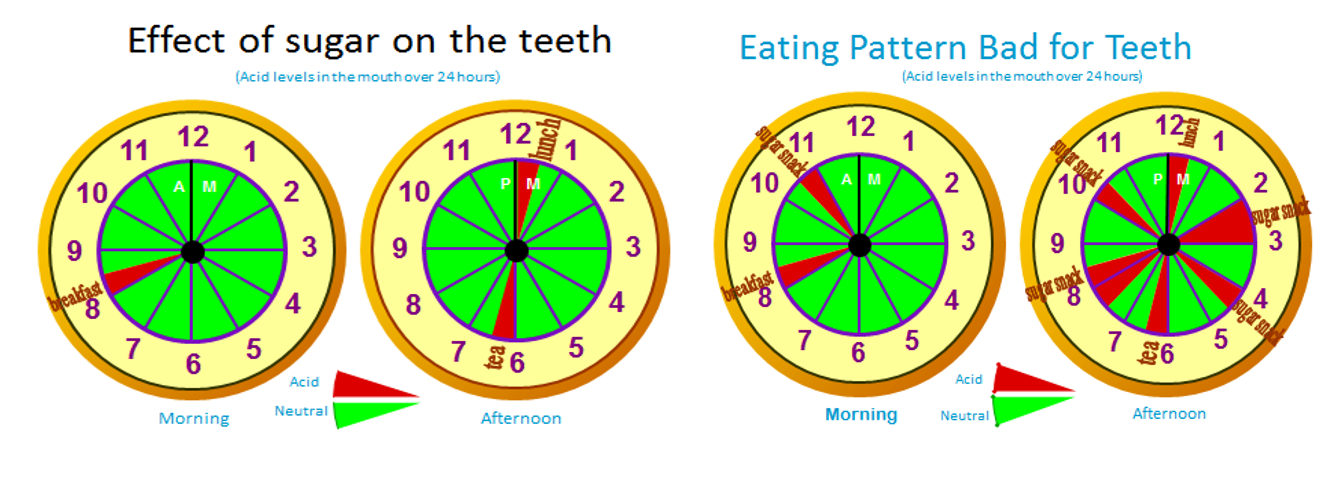1 in 3 children aged 5 within Torbay have had experience of tooth decay. Poor oral health can lead to tooth decay (dental caries) and potential extractions of both milk and adult teeth.
Tooth Decay
Tooth decay (dental caries) is caused when bacteria in the mouth produces acids that gradually soften the enamel, leading to cavities in the teeth. Sugar and acidic food and drinks play a key role in tooth decay.
Sugar is hidden in many foods including foods and drinks consumed at mealtimes. Frequent snacking on foods and drinks (including alcohol) containing sugar between meals increases the amount of times your teeth are under attack.
Although many drinks are advertised as sugar-free/no added sugar the acidity of these drinks can still harm the teeth by dissolving the enamel. See our guidance on sugar-free snacks and drinks page.
To help prevent decay, good oral hygiene routines are important, including regular and efficient tooth-brushing with fluoride toothpaste. Children’s milk teeth are more vulnerable and susceptible to decay than adult teeth, the enamel being thinner and less resilient - therefore not providing as much protection from bacteria.
‘Early Childhood caries’ is a term that is used to describe the presence of one or more decayed, missing (due to caries) or filled tooth surfaces in any primary tooth in a preschool-age child. It is often associated with the frequent consumption of sugary drinks, especially in baby bottles or sipping cups.
See the Dental Caries in children and young people - an overview of Torbay report

Tooth decay can have serious consequences for children and young people:
- Pain and infection through gum disease and abscesses. This can lead to difficulties with eating, speaking, and sleeping.
- Fillings and extractions
- School attendance may be affected in order for children to attend dental appointments. Parents or carers may have to take time off work to deal with the consequences of toothache or treatment.
- Children who experience early childhood caries are much more likely to develop subsequent problems, including an increased risk of further caries in both their primary and permanent teeth. This is partly because extensive damage to the primary teeth can cause abscesses that harm the permanent teeth developing inside the gums.
- In the case of advanced tooth decay where dental extraction is required, children are more likely to develop orthodontic problems as the premature loss of primary teeth can affect the alignment of permanent teeth.
A strong relationship exists between dental decay and social deprivation. Generally, children from poorer families will suffer higher rates of dental decay. It is, therefore, reasonable to assume that these children will need greater support in maintaining good oral health.
See our food guidance on our sugar-free snacks and drinks page.
Key statistic: 1 in 3 children aged 5 within Torbay have had experience of tooth decay.